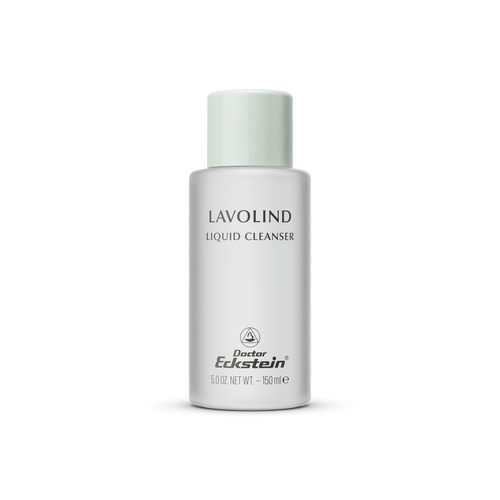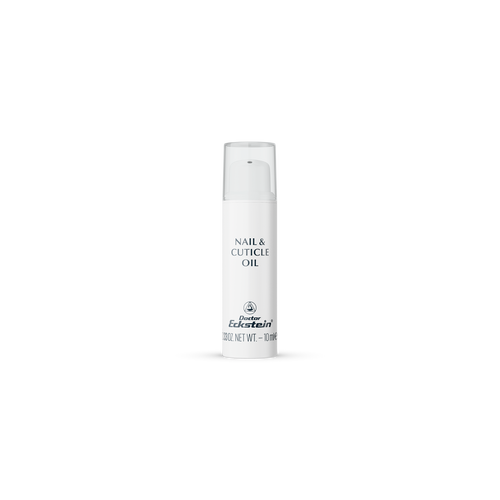"Organic" has become one of the most powerful terms in the food and self-care sectors. We encounter it everywhere – on food packaging, in beauty advertising, and increasingly in the textile industry. According to a press release from the Institute for Retail Research in Cologne last year, approximately 91 percent of people in Germany buy organic products, albeit with varying frequency.
The idea of organic skincare brings to mind clean, plant-based formulas free from chemicals or additives. But the truth is: in skincare, "organic" alone is no guarantee of quality.
What you truly need are ingredients that are high in purity, proven to be effective, and formulated to support skin health.
In this post, we’ll take a closer look at what organic really means in skincare, how it compares to other ingredient standards, and why that label alone shouldn’t be the main deciding factor in what you put on your skin.
What Does “Organic” Mean in Skincare?
In the EU, the term "organic" is clearly defined in the EU Organic Regulation for food products. The designation is subject to strict regulations and is even more stringent under some recognized organic labels. Labeling is mandatory; without it, the term "organic" cannot be used in advertising.
In the cosmetics sector, and therefore also in skincare, the situation is different. Here, the EU Cosmetics Regulation applies. The regulation does not legally define the term "organic," and consequently, there is no mandatory labeling requirement. However, the regulation states that no one may advertise with claims that are misleading, untrue, or unsubstantiated. This includes the term "organic."
Anyone can declare cosmetic products accordingly, but must be able to provide proof of this during an inspection. In the absence of specific legal requirements, inspectors often refer to the voluntary standards of organic cosmetic labels, which cosmetic manufacturers can use to obtain certification. In Germany, this is checked on a random basis by the relevant state authorities.
In short, it can be said that an organic ingredient comes from a plant that’s farmed without synthetic chemicals, and then minimally processed to retain more of its natural properties.
But the term doesn't tell you:
-
whether the ingredient is effective
-
how your skin reacts to it
-
whether it was tested for safety or stability
An unstable, highly concentrated, or incorrectly stored organic extract can do more harm than good.
The Three Ingredient Categories in Premium Skincare
You want skincare that’s safe, effective, and works with your skin. For that, you’ll need to look beyond the ‘organic’ label and ask better questions about ingredient quality.
Let’s break down three important categories.
1) Pharmaceutical-grade ingredients
Pharmaceutical-grade ingredients are held to stricter standards than typical cosmetic-grade ones. They must be:
-
Highly pure
-
exhibit a constant concentration
-
Consistent in concentration
- Clinically tested for safety and efficacy
They’re usually the same types of ingredients used in dermatological treatments and prescription skincare.
Contrary to popular belief, pharmaceutical-grade ingredients are not harsh. Instead, they have been tested and refined for results.
You won’t always see “pharmaceutical grade” printed on the product’s packaging. But reputable brands that use these ingredients, like Doctor Eckstein®, highlight clinical studies, dermatologist backing, or quality testing in everything we create.
2) Certified, Natural Ingredients
Despite what marketers want us to believe, a ‘natural’ product is not always a guarantee of quality. Some natural ingredients are harvested in uncontrolled environments, with no traceability or standardization. Others are minimally processed but degrade quickly or lack stability on the skin.
Certified natural ingredients are reviewed by independent organizations that check how the ingredient is sourced, processed, and preserved. The most trusted standards include:
- COSMOS
COSMOS is a European standard that evaluates the origin of ingredients (natural or organic), how they’re processed, the impact on the environment, and product packaging. COSMOS also places limits on synthetic preservatives and fragrances.
- Ecocert
One of the first natural and organic certifications, Ecocert requires that a set percentage of ingredients be naturally derived or organically farmed. It also enforces strict rules on processing, storage, and labeling to prevent greenwashing and promote environmental responsibility.
- NaTrue
NaTrue certifies products based on how natural or organic their contents are. It bans synthetic dyes, fragrances, and harsh preservatives, while demanding clear labeling so consumers understand exactly what they’re using.
3) Organic Ingredients
Let’s be clear: certified organic ingredients are not the problem. When sourced and handled properly, they can be a fantastic part of any skincare formula.
Organically grown plant oils, extracts, and butters can be:
-
Rich in antioxidants
-
Naturally anti-inflammatory
-
Packed with essential fatty acids and nutrients
-
Less likely to contain pesticide residues
But again, the ‘organic’ label tells you how a plant was grown, not whether the final ingredient is right for your skin. An organic essential oil, for instance, may be too strong or irritating for sensitive skin.
Additionally, even the best organic ingredient can lose potency if it’s poorly processed, exposed to light, air, or heat, and formulated in a way that destabilizes it.
The bottom line is, an organic ingredient is only effective if it’s pure, stable, and thoughtfully formulated into the final product
What Should You Look for Instead?
Some make the mistake of only chasing labels. Instead, you should be weighing ingredient quality, formula stability, and how well a product suits your skin.
1) Quality of ingredients
The quality of a skincare ingredient does not depend on whether it is organic, natural, or synthetic. What matters is:
-
Free from contaminants
-
Sourced responsibly
-
Tested for consistency and performance
Look for brands that are transparent about what quality of ingredients are used. Clear formulation standards indicate that the product is made with integrity.
2) Formula Stability
Many high-performance ingredients, like retinol, vitamin C or other antioxidants, are sensitive to air, light, and pH levels. Without proper stabilization, they can oxidize, degrade, or lose their potency long before they reach your skin.
A stable formula is a safe formula. When choosing, and using products you should:
-
Check the ingredient list for preservatives (microbial stability).
Preservatives are essential in water-based skincare because they help protect the formula from microbial growth. Even in organic products, some form of preservation is important.
-
Note changes in texture, color, or smell (physical stability)
While slight variations between batches is normal, if a product significantly darkens, smells off, or separates, it may be breaking down. Always store skincare away from heat and light, and stop using a product if it seems like it’s turned.
3) Skin Compatibility
No ingredient, organic or otherwise, is perfect for every skin type. Sensitive or acne-prone skin, in particular, may react to essential oils, raw plant extracts, or certain natural fragrances, no matter how pure or high-quality they are. In these cases, gentle pharmaceutical-grade ingredients can offer more predictable results and better tolerability. Another, major plus is if the product you are choosing is dermatologically tested for skin compatibility.
The best choice is the one that suits your skin right now. This may change with the season, your environment, or your routine. Pick products based on performance and how your skin responds.
Choose Quality
It’s easy to feel reassured by an organic label. But that label alone shouldn’t make the decision for you.
Your skin doesn’t care if an ingredient was harvested on a farm or created in a lab. What matters is that the formula is effective, stable, and compatible with your skin’s unique needs.
At Doctor Eckstein®, we combine the best of nature and science. Our formulas blend time-honored botanical extracts with advanced, skin-supporting ingredients like peptides, and liposomes. Every product is developed with high standards and backed by dermatological research.
We intentionally use a selection of pharmaceutical-grade, certified-natural and organic ingredients for our formulations, allowing ingredient purity, efficacy, and quality to drive our decisions.
Are you ready to get more out of your skincare? Discover the skincare solutions from Doctor Eckstein® now!
Take care, Verena
Sources:
COSMOS-standard AISBL (2025). Der Cosmos-Standard - Internationale Zertifizierung für Kosmetik. https://www.cosmos-standard.org/de/cosmos-standard/ (Accessed 4 Feb 2025) I ECOCERT (2025). Handeln für eine nachhaltige Welt. https://www.ecocert.com/de-DE/home (Accessed 4 Feb 2025) I Europäische Kommission (2013). Verordnung (EU) Nr. 655/2013 der Kommission vom 10. Juli 2013 zur Festlegung gemeinsamer Kriterien zur Begründung von Werbeaussagen im Zusammenhang mit kosmetischen Mitteln, ABl. L 190 vom 11.7.2013, S. 31. CELEX: 32013R0655 I IFH Köln (2024). Bio-Anteil 2030: Zwischen 8,1 und 17,3 Prozent – das Flächenwachstum entscheidet. Press release of 10 June 2024 I NATRUE (2025). GRUNDSÄTZE FÜR NATÜRLICHE, NACHHALTIGE PRODUKTE. https://natrue.org/de/ (Accessed 4 Feb 2025).



